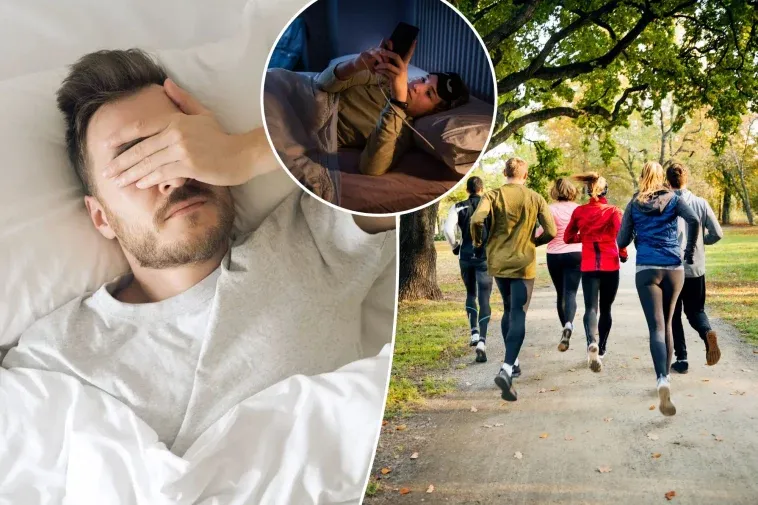(New York Post) Sleep is one of the most beneficial and important things for the human body — but there are key things to avoid to get the best night’s sleep possible.
Professor Russell Foster, a world-renowned expert in circadian rhythm, provided a simple checklist to follow to help with better sleep, according to the Daily Mail.
Those late-night cravings convincing a person to have a snack, or even a meal, before bed is one of the worst things to put the body through.
Professor Foster argued that eating a large meal can raise the body’s core temperature — making it more difficult to fall asleep.
Everything about sleep is generated by a natural process called circadian rhythm, which repeats roughly every 24 hours in the body.
When the body’s circadian rhythm is in effect, a drop in core temperature is formulated before a person falls asleep.
“If the food is spicy and particularly rich, that’s going to make it worse for elevating temperature,” he says.
Another one on Foster’s list is avoiding late-night exercise, which also relates to affecting the body’s temperature levels.
Exercise is considered a vigorous activity that raises the body temperature, making it harder to fall asleep.
Elsewhere, Foster stresses avoiding phone usage before bed, as both correlate with triggering certain areas of the brain.
Natural light in general plays a pivotal role in the sleep-wake cycle and affects melatonin levels, so high levels of artificial light have a huge impact on the body before bedtime.
When it’s dark out, the suprachiasmatic nuclei send messages to the pineal gland, which triggers the release of a chemical called melatonin, John Hopkins of Medicine notes.










Suprachiasmatic nuclei function as a natural circadian pacemaker that holds the timing of the sleep-wake cycle, according to the Natural Library of Medicine.
“I think it certainly is a rule of thumb to minimize light exposure but you do not have to be crazy about it,” Foster says.
When using the phone before bed, Foster says the devices have “alerting” triggers to the brain that force people to have difficulty unwinding and relaxing.